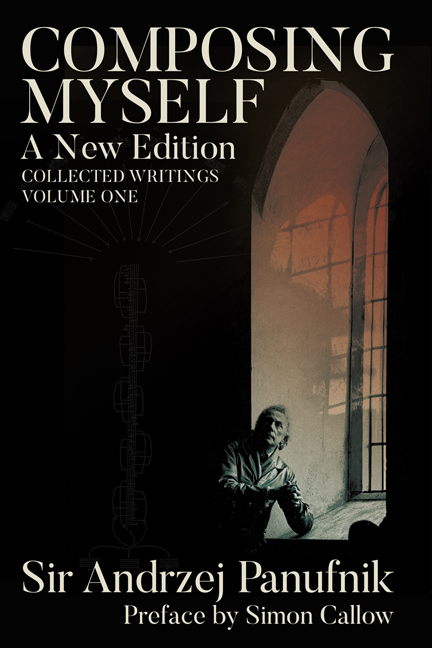16 - The Rise and Fall of Sinfonia Rustica
Published online by Cambridge University Press: 09 January 2024
Summary
For a brief interlude, I found time again for composition. The moment had arrived, I felt, to galvanise myself into tackling a new symphony, of completely different character from the previous ones. Sentiment prevented me from re-using the appellations of my lost Symphonies Nos. 1 and 2. I decided to give my new work – and any future symphonies – names instead of numbers.
My Sinfonia Rustica emerged as an expression of my love for the Polish peasant music from the northern part of our country, where the songs have exceptional charm. The art of the region is also outstanding, with imaginatively carved woodwork, brilliant folk costumes and intricate, colourful paper-cuts, either abstract or semi-abstract, often of symmetrical design. I decided that I would reflect these naïve but aesthetically appealing features in my new symphony. The symmetry of the paper-cuts was to enter into all aspects of the composition. Even the orchestral layout was symmetrical, for acoustic reasons as well as for visual effect, with eight wind instruments in the middle of the concert platform and two small string orchestras on either side carrying on a dialogue.
But I was not left in peace to complete this work. Together with several of my fellow composers, I was chosen by the Minister of Culture to join the governing body of the new Composers’ Union. Before I had even a chance to hesitate, I was harangued by a Ministry official to the effect that it would be to my advantage to abandon my ‘ivory tower’ (a critical label frequently applied to creative artists in the Soviet Union). In view of all that I had been trying to do for Polish music in general, while others – for understandable reasons – had remained at home composing, it did not seem a fair criticism. Moreover, the pressure was unnecessary, because I genuinely wanted to work for the newly created Composers’ Union. I realised that with a well-organised Union we should be able to obtain financial subsidies to commission new works, and we could actively encourage conductors and instrumentalists to perform new Polish music. We would also be able to demand that our members receive proper royalties, and stand up for their rights over such vital matters as housing and medical facilities, which otherwise were unattainable.
- Type
- Chapter
- Information
- Composing Myselfand Other Texts, pp. 206 - 231Publisher: Boydell & BrewerPrint publication year: 2023

